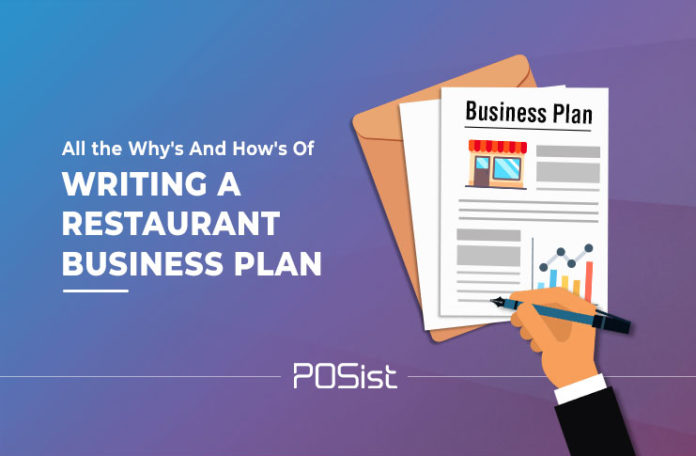A business plan is a roadmap for any restaurant business to follow. In most parts of the world, it is a guide map made for internal use to give clarity to the owners and immediate stakeholders as to what they want from the business, how they plan to achieve it, and what their market conditions are. In Dubai though, the relevance of a restaurant business plan is much higher. While all across the world, writing a business plan is optional as it is for internal use only, Dubai is a little different.
Investors and other stakeholders in Dubai pay close attention to your business plan before deciding if they want to invest in your restaurant. Even authorities take your business plan into consideration before granting the necessary licenses you will need in order to run the restaurant. Thus, your business plan is a silent spokesperson for your restaurant concept and the future of your restaurant may as well depend on it.
Here we have for you all you need to know about writing a restaurant business plan in Dubai.
Why You Need To Write A Restaurant Business Plan
According to the Dubai Chamber Of Commerce And Industry, a business plan describes the internal and external factors and influences involved in starting a new business by examining where the business is today, where it is going, and how it is to get there.
Starting a business especially a restaurant business in UAE is a little tricky. While UAE is one of the richest places in terms of a market to run a restaurant, starting a restaurant is a different scenario. Here are some reasons as to why your restaurant in Dubai needs a business plan.
1. Blueprint Of Your Ambition
Drawing your restaurant business plan is essential for clarity of your own vision. You cannot imagine your restaurant will be able to achieve its goals if you do not understand the market, the capability of your restaurant, its strengths, weaknesses, and how you can achieve the numbers you desire. Drawing a business plan will not give solutions to your problems but lay down your problems and resources in front of you to turn to.
2. Gives A Long-Term Clarity
It is very easy to get caught up in the hustle and bustle of daily operations and forget why you even started, what your end goal is and what targets you have to meet. Your business plan can give you a long-term clarity on what it is you want to achieve for you to base your annual or semi-annual targets on. This long-term clarity can help you design short-term goals or give you a bigger picture to strategize for current problems under.
3. Some Free Zones Always Require a Business Plan
UAE allows companies to form in many free zones. Your restaurant business may fall in a free zone with its own specific requirements. One of these is to have a business plan. While restaurant business plans are not compulsory in every free zone as some free zones require only specific industries to have a business plan, it is still better to have one.
4. Some Applications May Be Sensitive To Nationality
UAE has only 20% emiratis in its huge pool of the population, making it the home to the most number of immigrants in the world. This makes opening a restaurant business in UAE a daunting task as some free zones may require entrepreneurs from certain countries to give a business plan as a part of their application. For example, Dubai South Free Zone requires certain nationalities to submit a business plan depending on their requested license activity.
5. Necessary For Getting A Funding
Investors may not be willing to fund you if you don’t have a business plan. A business plan not only communicates your seriousness to your restaurant but also allows the investor to look at your plans, potential, and take a clear decision regarding the funding you as they will know the risk. Restaurant business plan in Dubai is as important as having all your licenses handy!
Now that you know why it is crucial to writing a business plan for your restaurant, next we come to how to write a business plan, its format, and what all to include.
How To Write A Restaurant Business Plan for Your Restaurant in UAE
To write a successful restaurant business plan, following the format is not enough. You must ensure that there are some key features that are highlighted in your plan. Here are some things that you must keep in mind while drafting your business plan.
- Be specific about your purpose. If you are drafting a business plan to get an investment, tailor it according to the investor’s convenience. If you need the business plan in order to apply for a free zone, customize it to that purpose. Generic business plans don’t work in the UAE.
- Show your compliance. Through your business plan, ensure that it is clarified that your restaurant’s activities will match its goals and business description. This will let the authorities know that you are serious about your work and also decipher that you are not planning to do anything illegal to a free zone thus making your chances to open the restaurant better.
- Show your true finances. As bad as your cost projections may seem, be realistic and true about them. Providing false data will get you nowhere as they will definitely be picked apart while your business plan is being reviewed.
The writing of your restaurant business plan will focus on two main questions:-
- Is your restaurant market space large, growing, or both?
- Is the restaurant industry now a lucrative investment or does it have the potential to be one in the coming future?
Format Of A Restaurant Business Plan
Now coming to the actual writing of a business plan, there is a set format that you must follow. Here is the format as released by the Dubai Chamber of Commerce And Industry and Government Of Dubai and what all you must cover under it.
1. Introduction
In the same form as the executive summary, use the introduction section to introduce the concept of your restaurant, its name, address and a short description of the business and its financing needs,
2. Executive Summary
No longer than two pages, the executive summary should include the main points of the entire document. It puts forward the key points of the business plan in a concise and persuasive way. Typically the executive summary will provide information such as the nature of restaurant business, factors contributing to its success, three-year projection, sales growth, profitability, and strategic focus.
3. Description Of Business
In this, a restaurateur will describe the restaurant business and the scope of its operations. In this section, a mission statement is issued describing what the restaurant wants to achieve, reasons it will be successful, and a description of what all it will offer. Including a SWOT analysis in this section will be a good idea to highlight your restaurant’s strengths and opportunities while you can give detailed plans for how you plan to cover up for your weaknesses and threats. This section will typically include the restaurant’s:-
-
- Location
- Utilities Available at the location
- Product or Service in terms of a sample menu
- Management Team
- Strategic Alliances
- Technical Capability
4. Industry Analysis
This section of your restaurant business plan will deal with the analysis of the market conditions of the restaurant industry in general. This will include an in-depth analysis of the trends in the restaurant space, the macro and micro-economic and political factors that impact your industry, an analysis of your competitors, the currently available technology in the space, legal issues central to the industry, etc. this segment will basically be regarding various external factors affecting the restaurant industry and how you place yourself in it. The industry analysis of your restaurant business plan will be a profile of the entire market and all the forces acting in it big or small.
Here is how you can do the Industry Analysis before starting your restaurant.
5. Marketing and Sales Plan
The sales plan will include how your restaurant and its products i.e the dishes will be priced, promoted, and distributed. Your industry analysis entailed a complete market analysis of your restaurant. This section will focus on breaking into that market and how you will do so. For that first, you will list out the market, its geographic area, your customer demographics, customer behavior, market segmentation, actual demand, potential demand, and future demand. You will also highlight your competitor’s positives and negatives and their strengths and weaknesses in this section along with how they have been performing. Based on all the information, marketing strategies will be analyzed. Your marketing goals, objectives and budget will be laid out here as 4 Ps of marketing:-
-
- Product
- Price
- Place
- Promotion
A target market is also defined in this section. A target audience will be defined on variables such as income and education levels, geographical location, environment, and demographic factors, etc.
6. Production Plan
Typically a production plan includes business processes and business models including innovations. For your restaurant business plan, you will cover the format of your restaurant, the menu you plan to offer, and how you will create the menu. The information must include:-
-
- Vendors and the cost of materials
- Tools and Types of equipment that will be used
- Raw Materials as in the inventory, cost, and requirements
7. Organizational Plan
In this part of the business plan, your restaurant will be described in terms of ownership, authority, and responsibilities. You will specify here if your new business is a proprietorship, partnership, joint-stock, or a private company. Apart from that, you will have to give information regarding the number of employees, managers, organizational structure, job descriptions of various employees and their roles and responsibilities.
8. Operational Plan
This section of your restaurant business plan will include your plan of action. How you plan to run the daily operations of your restaurant in order to give customers the desired service. You need not go into detail of every activity but you must provide a rough overview of daily operations. More important operations like staff training etc must be detailed and highlighted.
9. Financial Plan
Your financial plan will describe detailed projections of your restaurant business finances. This section shows your financial health and economic feasibility. Both government and investors are most likely to go into details of this section so make sure you are thorough with it. The source of your funds and the way in which you plan to use them must always be mentioned. For the financial plan, three financial statements will be needed to be prepared. These are –
- Income Statement – This will show the net income as the difference between projected revenue and projected cost.
- Cash Flow Statement – Cash flow statement also known as the budget indicates projected cash available. This is expressed in terms of the difference in projected cash inflows and projected cash outflows. It comprises four sections- The beginning cash balance, cash inflows, cash outflows, and closing balance.
- Pro Forma Balance Sheet – This shows the financial position of the restaurant and describes projected assets, liabilities, and net worth.
10. Risk Assessment
In this part of the restaurant business plan, possible risks are investigated and detailed along with strategies to tackle them. These risks may arise out of a competitor’s actions, government regulations, problems in production or procurement of raw materials, etc.
11. Conclusion
In this section, you close your business plan by highlighting why your restaurant will be a success. An entrepreneurial commitment must be illustrated in this section indicating experience in the field and commitment to the business.
12. Appendix
Extra pieces of information that you want to include in the plan but are not a part of the main body of the proposal are a part of the appendix.
Writing a restaurant business plan can be a time taking task but in the end, it is a one-time investment that reaps greater benefits.
Download this restaurant business plan template and employ the points mentioned above to create a winning blueprint for your restaurant!





















I want an investor for restaurant business if anyone interested.
WhatsApp me: +91 9405162870